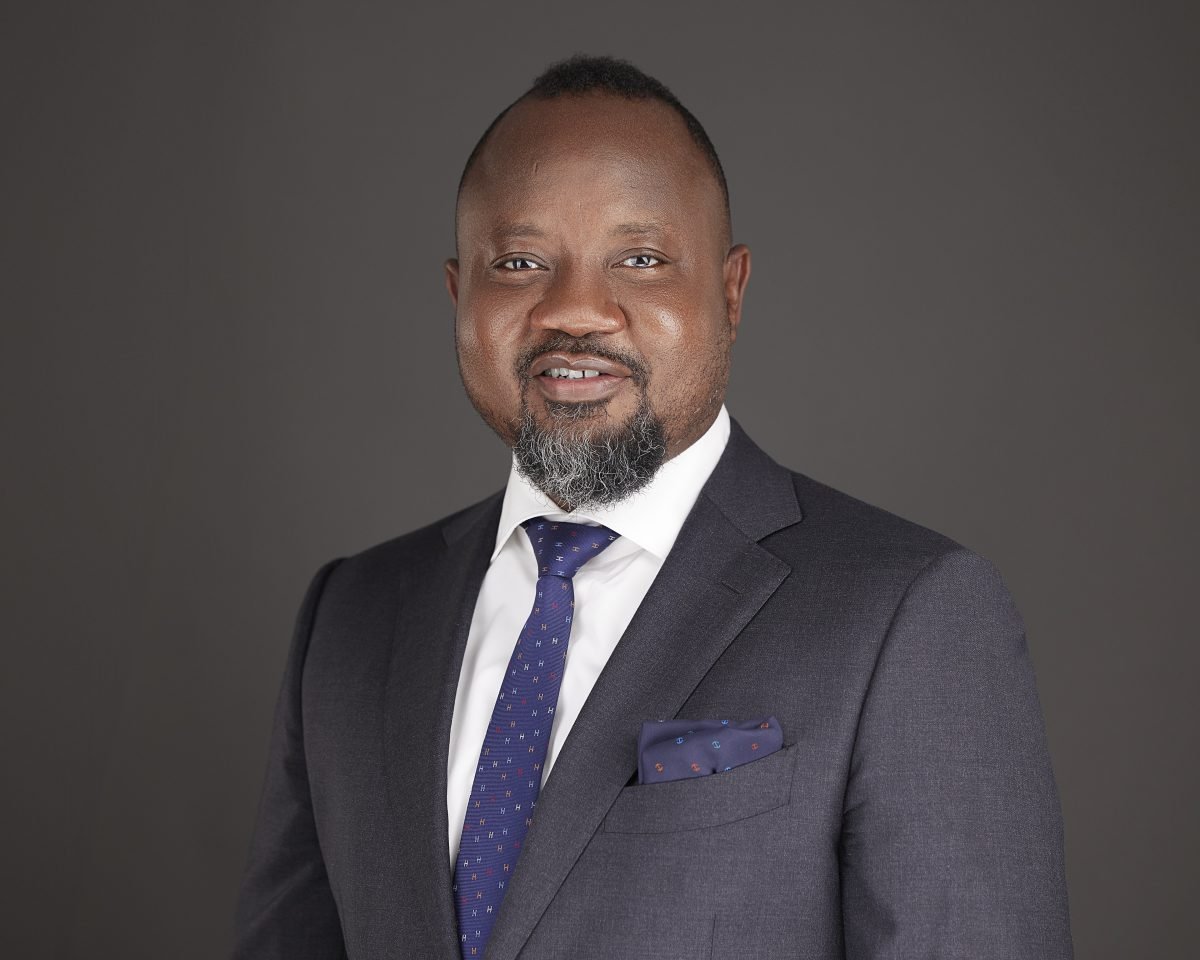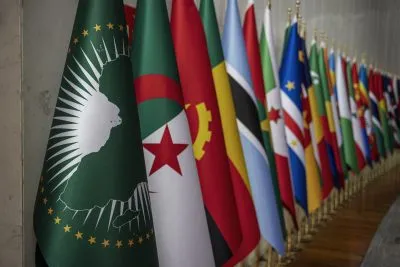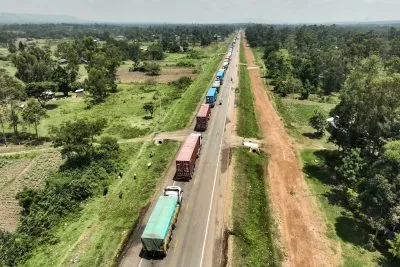Since its establishment in 2007 the Africa Finance Corporation (AFC) has defied expectations. This relatively new development institution, born out of public-private collaboration to drive investments into infrastructure, today has a balance sheet in excess of $12bn invested in infrastructure projects in 36 countries across the continent.
In an asset class that requires pioneers and innovators as well as intrepid actors, AFC has managed to demonstrate that infrastructure is investible. In the power sector AFC has invested in a wide array of projects, including CenPower’s Kpone plant in Ghana, the Cabeólica wind farm in Cabo Verde and the first-ever wind farm and independent power producer in Djibouti.
AFC has also financed transport and logistics projects such as the Henri Konan Bédié bridge in Côte d’Ivoire, the expansion of Ethiopian Airlines, the Bakwena toll road in South Africa and the Port d’Abidjan in Côte d’Ivoire. In telecommunications, the corporation was an early backer of the MainOne subsea cable (MainOne has since been acquired by Equinix). AFC has also made substantial investments in natural resources, including backing Thor Explorations’ Segilola gold mine in Nigeria, Sonangol in Angola and the Kamoa Kakula copper project in DRC.
Between 2022 and 2023 AFC grew its profits by 15%, climbing from $285.9m to $329.7m, while its operating income surged by 24% to reach $497.5m. The Corporation’s liquidity coverage ratio was 161%, and total equity saw a substantial increase of 27%, reaching $3.4bn.
That is the legacy that Banji Fehintola, its newly minted executive director of financial services at the bank, inherits and will be hoping to improve on.
Fehintola, who was treasurer at the Corporation and who has served at the bank for over a decade, took over on 1 August 2024 from Sanjeev Gupta, under whose tenure AFC saw a fivefold increase in borrowings, growing from $1.6bn to over $8bn, and a substantial expansion of treasury assets from $1.47bn to $5.29bn.
Additionally, Sanjeev played a key role in raising approximately $1bn in new equity capital, diversifying AFC’s shareholder base, and expanding its country membership from 13 to 43 nations. Given his experience at AFC, Fehintola is no stranger to the task at hand. He describes his role as raising the money that the investment division spends.
While the investment division focuses on deploying capital across AFC’s key focus sectors, the financial services division manages the Corporation’s balance sheet and raises both debt and equity capital from global capital markets. The division is central in positioning AFC as the key “go to” partner for global capital looking to work in Africa.
This division includes the core treasury functions and the treasury client solutions business, a relatively new initiative designed to provide a range of financial solutions to clients such as managing interest rate risks, currency risks, commodity price risks, and central bank relationships, as well as handling complex financial products like derivatives.
AFC, Fehintola says, has a clear mission. “We are trying to help Africa to industrialise. We are trying to bridge an infrastructure deficit on the continent.
“I was at a forum of African multilaterals recently and our combined balance sheets amounted to about $60bn and that is still too small,” he recalls. “We need 20 AFCs; 20 Afreximbanks; 20 TDBs and we will still only be scratching the surface,” he declares.
Diversifying AFC’s funding
Achieving AFC’s own targets requires raising new equity, Fehintola explains. “Our estimate is that we probably need to raise up to $1bn so we will probably be in the market looking for $200m in new equity every year over the next five years. So we will be very active in the bond markets and in the syndicated loan markets,” he says.
Some of these markets will be non-traditional. “We will be looking to tap new markets across the world. I don’t think depending on just Europe or the United States is sustainable in the long term so we will need to look for new pockets of liquidity across the world, including from Africa, to finance growth.”
This is a path that AFC is already on. In 2019 and 2022, it raised $140m and $160m respectively via “kimchi bonds” in Korea.
It has also ventured into Japan’s “samurai bond” market, issuing two successful syndicated loans. It is unabashed about its intentions to have a more diverse portfolio of funding sources.
“The Sukuk [Islamic finance] market for example, is one that has a deep pool of liquidity that we must find a way to crack,” he says.
Asia, Fehintola notes, will also be an important recourse for AFC in the coming years. “We are looking at the panda bond market, which is something that we haven’t done in the past but which we are looking at and we are also looking at Taiwan,” he says.
African financing key
Africa itself may yet become a crucial source of funding for its development finance institutions (DFIs). Calls for African capital to be deployed for African causes have risen in recent times, including a call by Ghana’s President Nana Akufo-Addo for African countries to invest at least 30% of their foreign reserves in African multilaterals. Fehintola places the situation in stark perspective.
“I’ve never understood why African reserves end up being shipped to New York and other developed markets, only for bank treasurers like myself to go back to the same places to ask the asset managers to buy our bonds to enable us to solve Africa’s problems.”
There is some vigorous outreach to central bank governors, but Fehintola concedes that African DFIs have to earn the trust of the stewards of the continent’s reserves.
“For the person managing the reserves, liquidity and safety are important so the question is how we tick those boxes to ensure that the money can be made available to finance infrastructure and address the other challenges that we have on the continent.”
Another important source of African capital is pension funds, which are estimated to hold about $1.2 trillion in untapped assets. Along with other African DFIs, AFC wants more of these to be deployed towards solving Africa’s problems, away from treasury bills and to causes that improve the lives of African citizens.
These efforts are being made against the backdrop of a challenging moment for African economies. Hikes in interest rates exacerbated the situation, especially for the countries most in debt. Some, such as Ghana and Zambia, defaulted on their debts. Several others are in distress and still more are having their credit ratings downgraded. It is important, however, not to paint the African situation with too broad a brush.
“We have seen successful issuances from Benin, Côte d’Ivoire and others only this year,” Fehintola points out. He says that investors are being careful in the choices they make and rewarding countries that they see as promising with their custom.
“Our bond yields are doing well, which means investors are buying those papers in the secondary market, so I think broadly speaking the appetite is there, but investors are being selective.”
Fehintola is optimistic about the medium- to long-term prospects for African countries’ participation in the capital markets, but insists that reforms are essential. Across-the-board reforms that take account of the impact of monetary, fiscal, tax and exchange rate policies are critical to restoring investor confidence where it has been lost.
“When investors believe that those reforms are going to pay off, I think investors will invest,” he says, adding, for good measure, that “the world doesn’t owe us anything and we need to sell our story.”
Want to continue reading? Subscribe today.
You've read all your free articles for this month! Subscribe now to enjoy full access to our content.
Digital Monthly
£8.00 / month
Receive full unlimited access to our articles, opinions, podcasts and more.
Digital Yearly
£70.00 / year
Our best value offer - save £26 and gain access to all of our digital content for an entire year!

 Sign in with Google
Sign in with Google 



